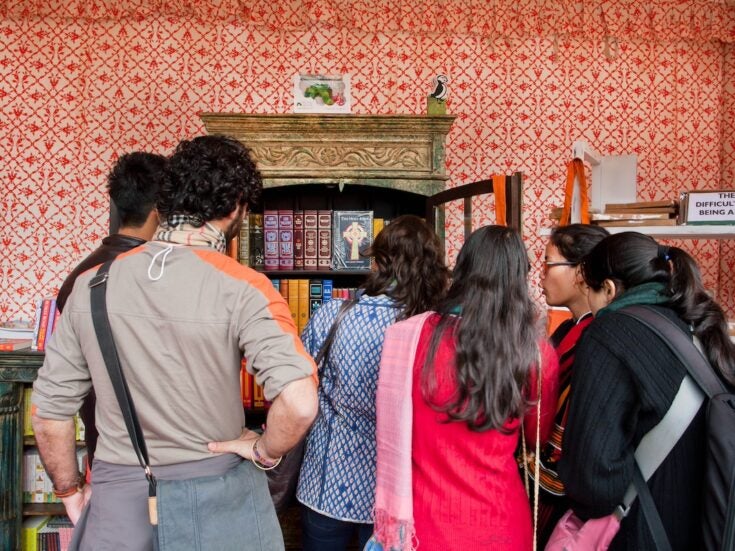
American Lady
The Life of Susan Mary Alsop
Caroline de Margerie
(Viking USA)
FOR MANY YEARS now, men and women have (theoretically) competed with one another on equal terms in the job market: there is no distinction (or there isn’t supposed to be) between their social roles. Yet it wasn’t so long ago that the public sphere was defined exclusively in masculine terms. If women had a place it was behind the scenes — bringing people together, organising parties, orchestrating informal social ties. They soothed; they cajoled; they scintillated. This was the role of the hostess.
In the middle years of the last century, Susan Mary Alsop was one of the most prominent exemplars of this breed. Born into the wealthy Jay family, she attended the right schools, ‘came out’ as a deb and married a young State Department employee, Bill Patten, who was posted to Paris as economic counsellor at the end of World War II.
It was an exciting time to be in that city. Americans, as agents of liberation, were popular. They had money and access to restricted goods. Susan Mary was energetic, well-born and pretty, and it wasn’t long before the most interesting people in Paris were flocking to the door of their elegant townhouse in the Square du Bois de Boulogne.
On the surface, Susan Mary was a conventional member of her class. To her many acquaintances she was the epitome of the clever, impeccable, charming transatlantic aristocrat.
Yet she harboured an interesting secret. Soon after arriving in Paris she had fallen in love with the British ambassador, Duff Cooper, husband of the famous society beauty Lady Diana. No one — not even the husband with whom she shared a bedroom — realised that their first-born son, Billy, was in fact the fruit of this clandestine relationship.
In the kind of circles we are talking about, extra-marital affairs, of course, weren’t exactly unknown. Yet this was no dalliance on Susan Mary’s part: it was the central event of her life. The pages devoted to the episode fittingly form the centre of Caroline de Margerie’s slim but engrossing biography, lending it depth and literary piquancy.
Cooper was one of the most notorious womanisers of the epoch, yet in the face of such faithlessness Susan remained devoted, and was heartbroken by his early death. The revelation of vulnerability places her otherwise ever-so-slightly trying wonderfulness in an admirably stoical perspective.
Shortly after Cooper’s death, her own husband, a chronic asthma sufferer, passed away. It was a signal to return to America and seek fresh challenges. (We are at the beginning of the Kennedy era.) A second marriage, to the wealthy and influential political columnist Joe Alsop, secured Susan Mary’s entrée into the centre of Washington society. Every Sunday evening, 24 well-assorted guests hailing from the higher reaches of politics and journalism sat down to dinner at her table. What energy she must have had — as all hostesses must have! And what single-mindedness.
Still, here too, not all was as it seemed. Alsop was a bitter and mean-minded husband. He was also a homosexual who, during a trip to Moscow, had been caught by the KGB in a masculine honey-trap. Photos of the escapade had been obligingly forwarded to the CIA and were circulating behind the scenes in Washington. As a result of these and other strains her marriage broke up, and Susan Mary became an alcoholic.
She was not without literary talent; her letters to Marietta Tree published a number of years ago provide a first-rate social commentary on the epoch. She also penned a couple of biographies — including a life of Lady Victoria Sackville, the mother of Virginia Woolf’s lover Vita.
Nonetheless, despite these minor successes in the field of letters it is hard not to see her as a victim: a victim of her class and of her times. One moral to be brought away from this entertaining and deftly informative biography is that there are no free rides: the privileged, the rich and the well-born, alas, are as liable as the rest of us to the hideous buffeting of fortune.







